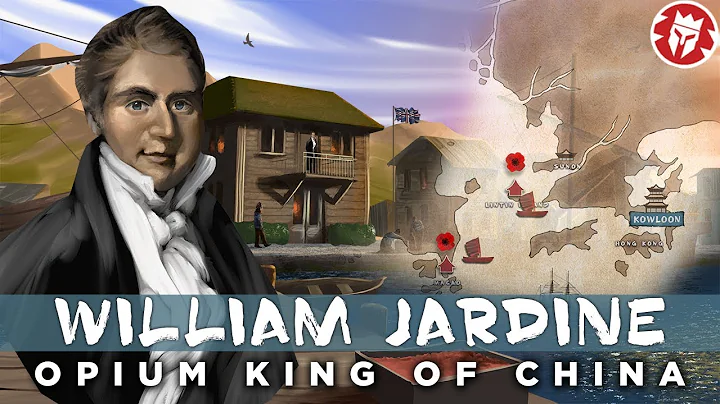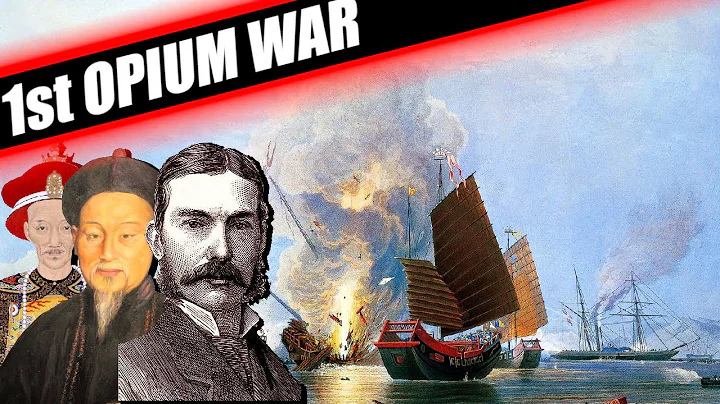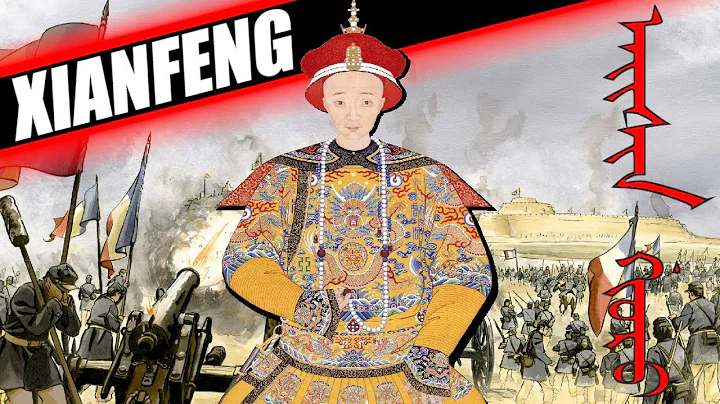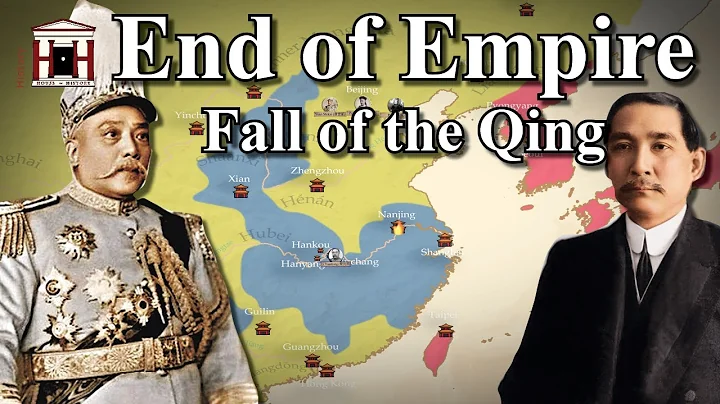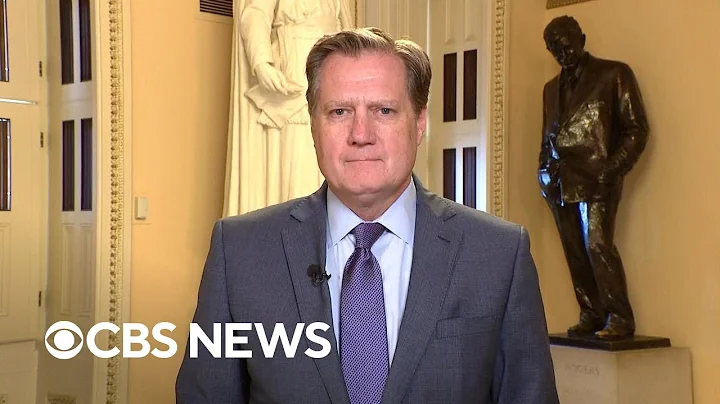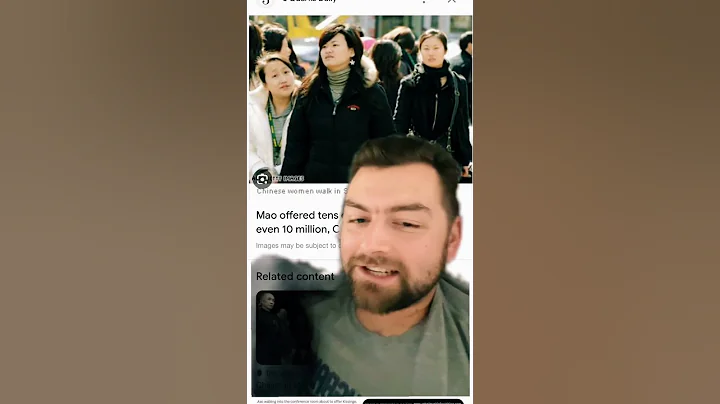
From the leap month of the 18th year of Daoguang's reign to the promulgation of the "Regulations on the Strict Prohibition of Opium Smoking" in May of the 19th year of Daoguang's reign (1839), during this year, all relevant designated officials followed the order and expressed their opinions. Looking at the discussion over the past year, no one among the officials in the imperial court has publicly advocated relaxing the ban on opium. Strictly banning opium has become the unanimous opinion of these officials, at least on the surface. However, there are very few officials who agree with Huang Juezi's theory of punishing drug abusers with death, but the majority of those who oppose it. Some of the opponents argued against the death penalty for drug addicts under the guise of "the holy dynasty is lenient and not subject to strict laws and severe punishments"; some argued for a stricter crackdown on hoarding and trafficking on the grounds of "cleaning up the flow and cutting off the source". Tao Shu, the governor of Liangjiang, was one of Huang Juezi's supporters. He believed: "Huang Juezi's statement that serious treatment of drug abuse crimes is based on the death penalty is really a last resort and an urgent task to save the world."

Huguang Governor Lin Zexu also became Huang Juezi's strong support By. In his reply to Emperor Daoguang, he pointed out: "Opium is poisonous in China, and its grain silver is consumed overseas. Who among the ministers does not gnash his teeth!" External evils are entangled, and ordinary medicines are not enough to overcome the disease, but sometimes they cannot be used without treatment. It is difficult to reform the addiction, but it is difficult to reform the heart. If you want to reform the mentality of playing tricks, you cannot establish the method of fear." When the officials of the imperial court expressed their opinions on Huang Juezi's memorial, the Qing government followed the punishment regulations established in the past. Smoking is prohibited.

On July 19, the eighteenth year of Daoguang (1838), Emperor Daoguang ordered the officials who had taken opium seized from the capital to be dismissed from their posts, and the traffickers were handed over to the Ministry of Punishment for interrogation. On July 21, he also ordered the Guangdong and Guangxi Provinces to Governor Deng Tingzhen punished Guangdong generals who smoked opium cigarettes in Bending at any time, so as to focus on maritime borders and use fine military equipment. On July 28, based on relevant reports of opium being carried by foreign ships in Tianjin and being hoarded and sold by shop owners, he warned the Governor of Zhili Qishan : Tianjin is an important pass at Haikou, and it is inevitable for profiteers to hoard and sell opium. Now, it is inevitable. When rectifying, we should especially focus on the key points to eliminate the source of shortcomings. Emperor Daoguang ordered Qishan to appoint Minggan proper officers to investigate closely and punish them according to law. On this day, the Qing government also issued an order to commend Guo Jinchen, the magistrate of Hanyang, Hubei who implemented a strict smoking ban. In September of the 18th year of Daoguang's reign, the Qing government made a series of important decisions to implement a nationwide smoking ban. On September 17, Emperor Daoguang ordered the academicians and military ministers to hold a meeting with the Ministry of Punishment to study the opinions of the generals and governors of various provinces on smoking bans. On September 19, the emperor sternly ordered the generals and governors of all direct provinces to "refresh their spirits and eliminate old habits" and "take advantage of this time to rectify the situation, work together as one, regardless of territory, and do not relax even a little bit." "The crimes of trafficking, opening a tavern, etc. should be severely punished. That is, civil and military officials, soldiers and civilians, etc. who take drugs and do not know how to change should also be investigated together and dealt with separately." On the same day, he also ordered that Prince Zhuang Yidou and Duke Puxi, who had gone to the nuns' temple to smoke opium, be deprived of their royal titles and duke titles respectively. On September 22, Emperor Daoguang punished Xu Naiji , who openly advocated relaxing the ban, on the charge of "presumptuous blasphemy, which is extremely wrong", and punished him by "reducing him to the sixth rank, top wear, and immediately taking a rest." He clearly announced: " Opium spread to the mainland, and the government and the people instigated it, and the infection became more and more serious. The year before last, Xu Naiji, the Shaoqing of Taichang Temple, petitioned to relax the ban. This year, Huang Juezi, the minister of Honglu Temple, petitioned for a strict ban and issued an order to the province. The generals and governors discussed the regulations. I deeply hate this matter and will definitely try to cut off the roots so as not to cause further trouble." This statement by Emperor Daoguang further clarified the Qing government's policy of strictly prohibiting opium, and played a great role in promoting the ban on smoking across the country.

Qi Shan, the governor of Zhili, seized more than 131,500 taels of opium on a foreign ship in Dagu, Tianjin, which was an important result of the Qing government's strict prohibition policy. On September 23, Emperor Daoguang issued an edict calling Lin Zexu, the governor of Huguang, to Beijing to discuss the smoking ban.He summoned Lin Zexu not only because Lin Zexu had publicly supported Huang Juezi's strict ban, but more importantly, Lin Zexu vigorously promoted the smoking ban in his Lianghu area and achieved remarkable results, making the Lianghu area clearly ahead of the rest of the country in terms of smoking ban. At that time, a large amount of tobacco, smoking utensils were seized in the Lianghu area in just two months. In Hanyang County alone, more than 12,000 taels of tobacco were seized. Hanyang and Jiangxia counties confiscated 1,264 cigarettes. Wuchang, Hankou More than 700 cigarettes were confiscated. More than 2,300 cigarettes were confiscated in Hunan Province. Lin Zexu's strict ban on smoking made illegal and traitorous people "all frightened. Those who opened restaurants to sell tobacco would go far away when they heard about it, and those who smoked it would fear for their lives and change their plans." In addition, Lin Zexu advocated a combination of leniency and toughness in the ban on smoking. During the strict ban, he tried every means to collect traditional Chinese medicine formulas and prepared smoking cessation pills for long-term smokers. After taking them, the effect was very good. Two, but those who are actually cut off will become fatter and stronger after the cut." Lin Zexu reported the actual results of the smoking ban in the two lakes to Emperor Daoguang in a timely manner, and pointed out with confidence: "People's sentiments are not unafraid of the law, and customs can be transferred. It all depends on the strictness of the laws and regulations, which can prevent the public from being relaxed."

"I observed the public sentiment and found that it was not irreversible. I took the opportunity to give warnings and acted leniently and harshly. Those who surrendered were allowed to rehabilitate themselves, while those who hid were searched vigorously. We did not chase the past and were a strict warning for the future." Lin Zexu wrote to Daoguang in early August. The profound analysis of the serious harm caused by the proliferation of opium in one of the emperor's memorials further strengthened Emperor Daoguang's determination to strictly ban opium and eradicate its roots. In Lin Zexu's "Money and Tickets Are Not Important, It's Better to Strictly Forbid Smoking to Stop the Harm Sources", he analyzed and argued to Emperor Daoguang: "The importance of the law should be weighed by the severity of the harm, and it is necessary to adapt to the current conditions. It is not a last resort. When opium was not in vogue, the addicts were not harming themselves, so the poison was already spreading to the world, and the harm would be great. Afterwards, there were few soldiers in the Central Plains who could defend the enemy, and there was no money to pay for it. Thinking about this, I couldn't help but tremble!" Emperor Daoguang was determined to strictly ban opium, and had high hopes for Lin Zexu, so he summoned him to Beijing to discuss with him. Non-smoking matters.

On the tenth day of November, Lin Zexu arrived in Beijing. Emperor Daoguang summoned Lin Zexu many times. Soon after, he awarded Lin Zexu the Imperial Envoy to Guanfang and ordered him to go to Guangdong to investigate the Haikou incident. In order to prevent foreign opium dealers from using force to destroy the opium ban, Emperor Daoguang also granted Lin Zexu the title of Minister of War and the power to control the Guangdong Navy, and instructed Lin Zexu to control the "kiln entrances, fast crabs, opening opium dens, selling and smoking" in Guangdong Province. , the roots should be eradicated anytime and anywhere.”
Lin Zexu left Beijing and went south to Guangdong on November 23, the 18th year of Daoguang's reign (1838). During the period when Lin Zexu was called to Beijing and Lin Zexu left Beijing for Guangdong, under the strict supervision of the Qing government, the anti-smoking campaign was fully launched across the country and achieved considerable results. In Zhili , Qishan obtained more than 130,000 taels of opium in Haikou, Tianjin; more than 4,000 taels of opium were seized in Xunzhou Prefecture, Guangxi; and more than 38,000 taels of opium, tobacco paste, and more than 1,000 pipes were seized in Wuzhou Prefecture. more than 2,400 taels of tobacco were seized in Shengjing; 141 cases of illegally opening kilns were uncovered in Guangdong, 345 criminals were seized, and 10,158 tobacco guns were confiscated; In Yunnan, 22,000 taels of opium and tobacco paste were seized, and more than 1,360 acres of poppy seedlings were shoveled away. Although these seizures of tobacco, tobacco paste, smoking utensils, criminals, and uprooted poppy seedlings are insignificant compared to the actual quantity, they indicate that the Qing government's long-standing anti-smoking ban has begun to become a nationwide one from a mere name. Practical action also heralds the imminent start of a broader and deeper anti-smoking movement. With the arrival of Imperial Envoy Lin Zexu in Guangzhou, Guangdong soon became the center of the national anti-smoking movement.

Lin Zexu lived up to the emperor's trust. On the way to Guangdong, he immediately made a list of the most important criminals to be seized and ordered the relevant officials in Guangdong to take action. On the 19th day of the first lunar month in the 19th year of Daoguang's reign (1839), Lin Zexu arrived in Guangzhou and immediately launched a series of activities.He met with civil and military officials, friends, and fellow villagers in Guangdong to learn about the opium epidemic situation in Guangdong. He visited people who were familiar with the coastal defense situation to plan the defense of Guangdong. He recruited Western compradors and other people who knew Western languages and affairs to "visit the barbarian sentiments." ; He conducted private visits incognito and gained an in-depth understanding of people's privacy and sentiments. After extensive investigation and research, Lin Zexu decided to cut off the source of opium as his top priority. To cut off the source of opium, it is necessary to eliminate all the opium on barges and . However, the barges are anchored overseas, and even if naval ships are dispatched to seize them, they may not be sure of their capture amid the huge waves. Lin Zexu, Deng Tingzhen and others concluded that most foreign opium and cigarette merchants were still stranded in Guangzhou at that time, and forcing them to hand over the opium on the barges was a good strategy with half the effort and twice the result.

On the fourth day of February, Lin Zexu, together with Deng Tingzhen and Yiliang, summoned the Thirteen Foreign Traders merchants at the imperial envoy station and ordered them to inform foreign opium and cigarette merchants to hand over all the opium stored in the barges and Fill in the Ganjie in both English and Chinese, guaranteeing that "future ships will never dare to carry opium. If any opium is brought, once it is discovered, the goods will be taken away from the officials, and the person will be punished, and he will willingly admit his crime." Lin Zexu declared his determination to ban drugs in the middle volume of the edict "Collection of Lin Zexu - Memorials": "If opium is not exhausted for a day, and this minister does not return for a day, I swear to stay committed to this matter, and there will be no reason to stop!" Emperor Daoguang deeply praised Lin Zexu's determination to ban smoking. He praised Lin Zexu for being "loyal to the emperor and patriotic, and his love for the country is as clear as the outside". He also instructed Lin Zexu to strictly enforce land and sea traffic at Guangdong's seaport where ships from all over the world pass through the main channel. ", they are not allowed to sail through the entrance, coveting them unintentionally, inland bandit ships, they dare not sneak overseas to collude privately, and must eradicate all evil deeds." Lin Zexu received the full support of Emperor Daoguang, and his confidence doubled. He took effective measures and finally forced foreign opium dealers to hand over more than two million kilograms of opium. In compliance with Emperor Daoguang's order, Lin Zexu destroyed the seized opium in public in Taiping Town, Humen, Guangzhou, showing to foreign invaders the Chinese people's unswerving determination to control drugs.

During the period when Lin Zexu was presiding over the ban and elimination of opium in Guangdong, the Qing government approved the thirty-nine articles on the ban on opium and cigarettes proposed by the five ministers meeting on May 4th. This imperial decree strictly prohibiting opium cigarettes stipulates: For traitors along the coast who open kilns, collude with outsiders, and hoard opium, the first offender intends to kill the owl, and those who are accomplices and escort convicts, and knowingly hire ship owners, intend to hang them in prison. Those officers who knowingly indulged themselves will be dismissed from their posts, and those who failed to observe will be dealt with separately; those who failed to observe the regulations will be dealt with separately; officers and soldiers along the coast accepted bribes and indulged themselves, and were planned to be hanged and executed., and knowingly engaged in indulgences, they were all sent to Xinjiang, where the officials served as slaves and the soldiers were slaves; The officers and soldiers discussed the case separately, and the soldiers were armed with sticks; an opium den was opened, and the first offender planned to be hanged and sentenced; the accomplices and those who rented houses with knowledge were sent to Xinjiang as slaves to the officers and soldiers; military service covered up the same crime; there was a scheme to steal stolen goods; a serious violation of the law; negligence The officials in charge will discuss the punishment separately; those who plant opium poppies, make tobacco, and sell cigarettes for up to five hundred taels, or if they do it multiple times, the first offender will be hanged in jail, in order to further spread the smoke miasma in the border area and be sent to the army; all offenders who smoke will be restricted For one year and six months, if the time limit is over and there is no change, regardless of whether it is official or civilian, the prison sentence will be and jailed ; for those who are serving as officials, relatives of officials, friends of the government, etc., those who smoke in the office within one year and six months will be treated as civilians plus one Waiting for punishment; officials who smoke within six months of a year will be sent to Xinjiang to work as hard labor; officials who smoke will be sent to Xinjiang, and ministers in various cities will not be allowed to guarantee the performance; those who smoke in the royal clan will be sent to Shengjing. Keep strict control. If they are officials or princes, they will be dismissed from their posts and titles, and will be sent to Shengjing never to be used again. If the prisoner reaches the latter period of one year and six months, the punishment will be increased according to the new regulations and he will be hanged in prison; officers and soldiers will search for opium and cigarettes, and if there is a large group of people who resist arrest, they will be shot without mercy. Emperor Daoguang issued this regulation to all provinces and ordered them to Follow it. He also ordered the cabinet to "codify it into the regulations and always abide by it."

Emperor Daoguang elaborated on the purpose of issuing the "Imperial Regulations on Strictly Prohibiting Opium Smoking" and said: "I only tolerate those who are not, so I love the people, and I punish those who punish me." Opium comes from Overseas, opium poppies are grown in the mainland, alluding to fishing interests, soldiers and civilians, etc. Those who are poisoned by it are first seduced by others, and then become accustomed to it and even end their lives and kill their children without knowing how to change. Customs and customs are very important to people's hearts.If the ban is not checked as soon as possible and the source of the evil is permanently eliminated, the infection will become deeper and deeper, and the harm will be caused to the bottom of the beard? "I want to eliminate this scourge for the world, so I will not hesitate to give repeated admonitions and special punishments, in order to change customs and trends, and return to simplicity." Daoguang took advantage of the promulgation of the "Regulations on the Strict Prohibition of Opium Cigarettes" to once again warn the court officials: Although sea traders, kilns, and smokers are now sentenced to death and severe punishments are set, "all kinds of abuses, especially Strength inspections should be carried out at any time and at any time, and unremitting efforts should be made to eliminate the roots of the common people and try to control the wind." If there is "a cover-up that cannot be dealt with, we should immediately investigate the facts strictly and punish the crime severely." If you still want to play around and treat doctrines as formal documents, if you are afraid of difficulties and remain contented, or if you are always diligent but lazy, you are willing to play games and sacrifice your conscience. I will obey the law and will never lend leniently! "The "Regulations on the Strict Prohibition of Opium and Cigarettes" is the most stringent and comprehensive ban among all the bans promulgated in the Qing Dynasty for more than a hundred years. Those who sell, grow, and smoke will be punished with death. Officials and princes of the royal family, including Jueluo, are not immune. , and were punished as ordinary people, which fully demonstrated the determination of the Qing government to eradicate old habits and eradicate opium poisoning in one fell swoop. This was a powerful impetus for the anti-smoking campaign that was being carried out across the country

in the 1930s. The anti-smoking campaign launched in the late 1990s achieved remarkable results. At that time, the opium market in Guangzhou had completely stopped, and no smuggling ships were able to travel. It is true that the degree of implementation of anti-smoking measures varies greatly across the country. Some officials waited and waited and followed the rules but had little effect. However, the Qing government tried its best to promote a nationwide ban on smoking. Today, when we comment on the Qing government's smoking ban, we should certainly point out that the Qing government's smoking ban was nothing more than a ban on smoking. To maintain the feudal rule of the Qing Dynasty, even so, the Qing government's strict ban on smoking was beneficial to the country and the people, so it was a positive measure. He gave this evaluation of China's anti-smoking campaign: "Opium was destroyed by the most thorough means. In the history of the world, a non-Christian monarch would rather destroy something that harmed his subjects than sell it to fill the warehouse." Own pocket, this is the only instance. The handling of the entire matter will always be one of the most remarkable events in human history. "Such an evaluation is not an exaggeration.
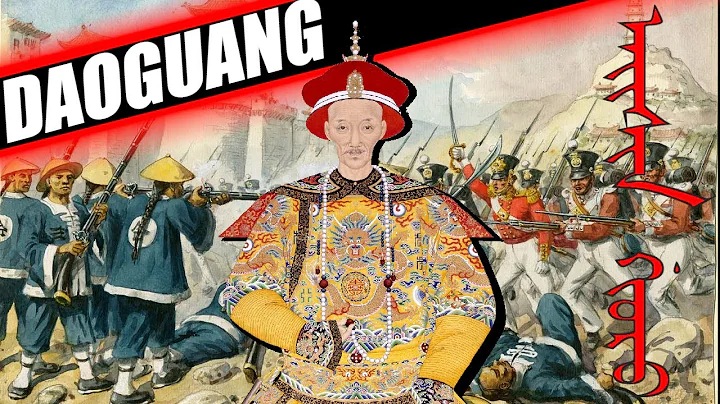


![How did the Chinese Qing Empire Collapse? [Complete History Documentary] - DayDayNews](https://i.ytimg.com/vi/EdY5-uLyp94/hq720.jpg?sqp=-oaymwEcCNAFEJQDSFXyq4qpAw4IARUAAIhCGAFwAcABBg==&rs=AOn4CLAdNq5Egyik6zq707olFE981IFvgA)
